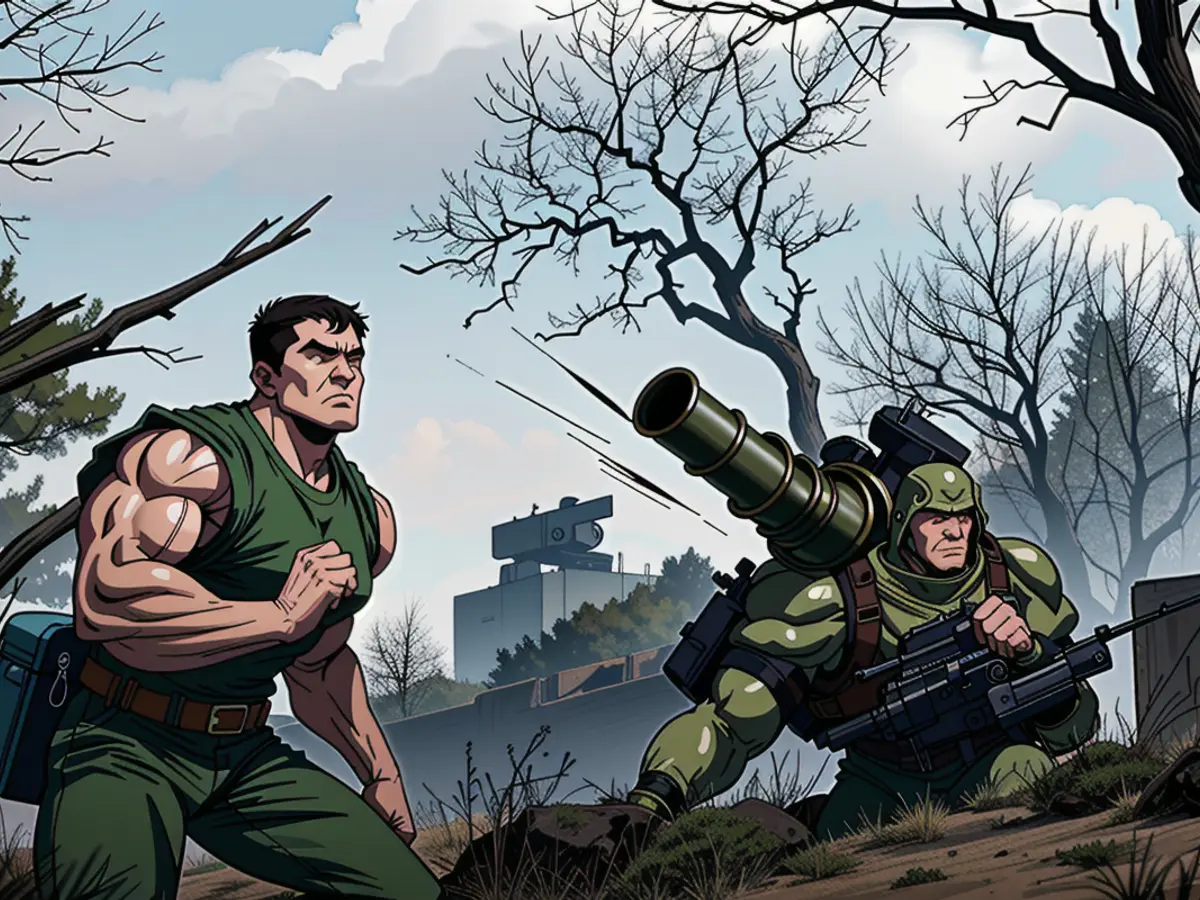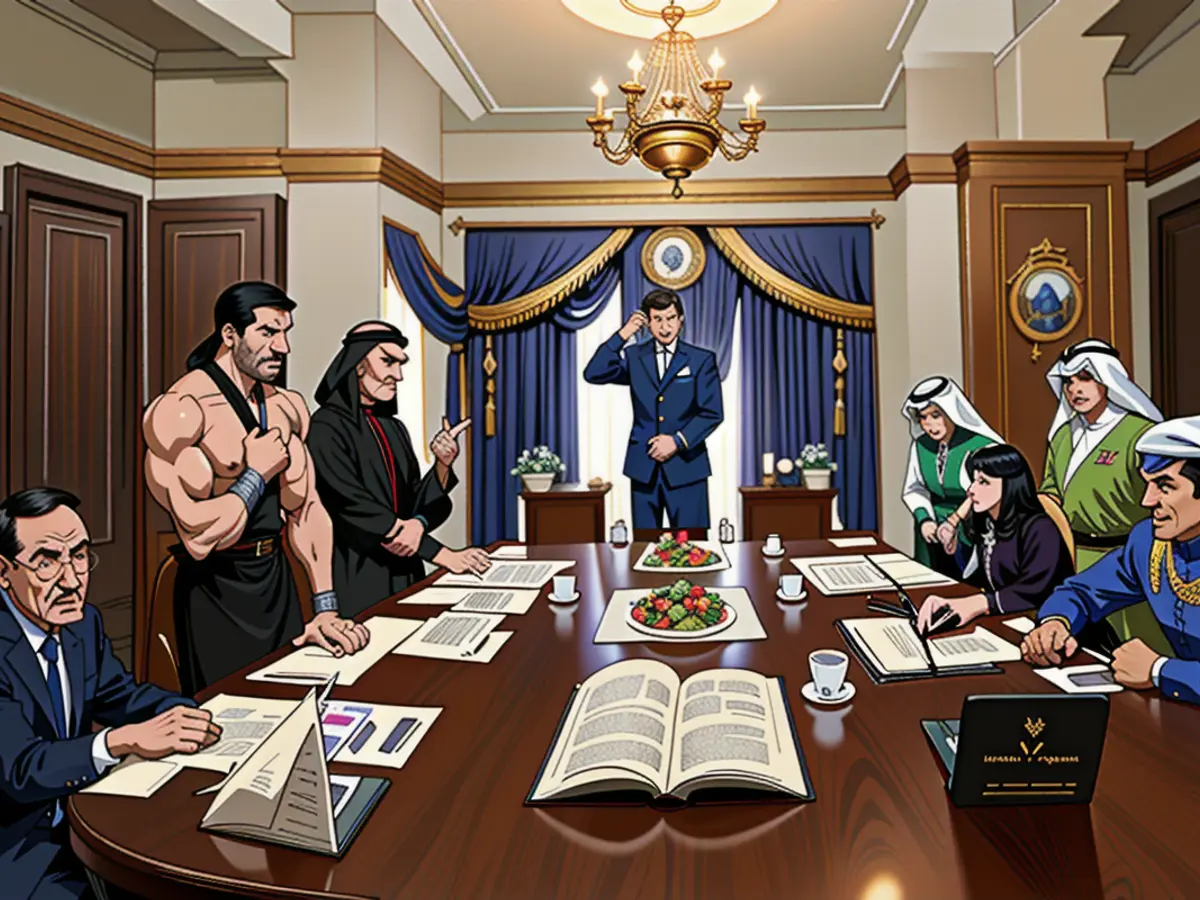Navigating the Perplexing Whirlwind of Diplomatic Maneuvers in the Ukraine War Conflict
Fiery Diplomacy: Trump's Battles Behind Closed Doors to End Ukraine War
The recent phone calls between President Donald Trump, President Vladimir Putin, and President Volodymyr Zelensky have ignited a diplomatic storm not seen since Russia invaded Ukraine three years ago.
Initial indicators are disheartening, as Putin rejected Trump's proposal for a 30-day truce. Yet, Trump views any dialogue as a victory, and each leader is maneuvering to manipulate the peace talks to their advantage, and shield themselves from blame if it all crumbles.
The White House spins a yarn of significant progress to keep the hope of a peace process alive and uphold the dubious claim that Trump is a masterful dealmaker. But Putin has firmly declined Trump's major demand on the truce. The Kremlin isn't ready to end the war just yet, as evidenced by new conditions Ukraine couldn't accept if it wishes to survive as a sovereign state. However, Putin hasn't ruled out the chance for an expansive partnership with Trump to lure him in.
Zelensky, learning from his Oval Office blowup, readily consents to whatever Trump asks for. Ironically, Zelensky's explosive argument—that Putin cannot be trusted to hold ceasefire agreements—has proven true. After a violent night, both sides accused each other of breaching the partial agreement that Trump brokered to protect energy infrastructure. This discord undercuts Trump's boisterous statements that a peace deal is within reach.
The White House has dismissed Putin's intransigence, commending the tone of his call with Trump on Tuesday and arranging technical talks with the Russians in Saudi Arabia in the near future. Creating an illusion of progress is crucial in peace negotiations, giving adversaries an incentive to stay at the negotiating table. However, the alternate reality may also serve to soften the blow for a president who predicted he'd end the war in 24 hours if re-elected. In their phone call on Tuesday, Putin proved the superior negotiator, outmaneuvering a resistant Trump.
On the other hand, Trump appears to have eased up on Zelensky, possibly because of Zelensky's more pleasing demeanor. They agreed during a lengthy call on Wednesday to collaborate in locating urgently required air defense equipment for Ukraine in Europe. The U.S. also vowed to continue providing military aid and intelligence to Ukraine, a stance Trump had previously abandoned to pressure Kyiv into his 30-day ceasefire plan. This is a rare rebuking to Putin, who made the suspension of US military and intelligence assistance a condition for pursuing a permanent peace.
"Just completed a very good telephone call with President Zelensky of Ukraine. It lasted approximately one hour," Trump wrote on Truth Social. "Much of the discussion was based on the call made yesterday with President Putin in order to align both Russia and Ukraine in terms of their requests and needs. We are very much on track." Trump's overly optimistic assessment pales in comparison to a few weeks ago when he labeled Zelensky a "dictator."
Dreams of a peace deal now seem less achievable than ever, although if this week's dramatic events form the foundation for a sincere push toward a fair and lasting settlement, Trump might yet prove his doubters wrong.
Russia: Firm as a Rock

The Trump administration is bracing itself for an exhibition of Kremlin root-canal diplomacy. By agreeing in principle to the 30-day ceasefire but presenting a barrage of conditions requiring Ukraine's and the West's capitulation, Putin stymied any progress. Extensive talks on technical details will afford his forces time to exploit their current battlefield advantage and repel Ukrainian troops from the Kursk region, a valuable bargaining chip for any future peace talks.
Putin's demands for a peace deal, such as the replacement of Ukraine's current government, demobilization of Kyiv's forces, and NATO's withdrawal from Eastern Europe, remain unaltered.
At talks with Russia in Saudi Arabia earlier this month, Secretary of State Marco Rubio stated that the upcoming days would be crucial in gauging Russia's sincerity in the negotiations. "It'll be up to them to say yes or no. I hope they're going to say yes. If they do, then I think we made great progress. If they say no, then we'll unfortunately know what the impediment is to peace here." By Rubio's standards, Moscow has now given a negative response. Yet, he can't openly admit it due to political and diplomatic constraints and must continue the charade.
Finland's Foreign Minister Elina Valtonen encapsulated the current state of the talks, in an interview with CNN's Isa Soares on Wednesday. "Trump wants peace. Europe wants peace. Ukraine wants peace. And there is only one missing - that's Putin."
Russia is unlikely to withdraw from the conflict, with the Russian readout of their call on Tuesday suggesting Putin offered Trump the opportunity to establish the kind of broader relationship with Russia that Trump craves, causing the US leader to view the war in Ukraine as a mere sideshow. Next, the U.S. aims to negotiate a Black Sea maritime ceasefire, and that suits Putin fine since it could restrict Kyiv in one of its most successful combat arenas.
Ukraine: In the Game, but Playing Defense
Rubio and national security adviser Mike Waltz described Zelensky's call with Trump as "fantastic." This represents a diplomatic victory for the Ukrainian president less than three weeks after being ejected from the Oval Office. Zelensky has toned down his approach, reasoning that to save Ukraine from the worst of Trump's pro-Putin instincts, he must be the party in the conflict most conspicuously working toward peace, and by extension, diplomatic triumph for Trump's legacy.
Zelensky concluded his reads of the call with gratitude and praise he was accused of withholding during the Oval Office clash. "We believe that together with America, with President Trump, and under American leadership, lasting peace can be achieved this year," Zelensky said in a statement that was remarkably warm about US efforts in comparison to anything the Russians have expressed. He raised the crucial issue of security guarantees vital to preventing any future outbreaks of fighting after an agreement.
While catering to the White House, Ukraine is also working another angle with the Europeans, who are building a "coalition of the willing" to aid Ukraine if Trump withdraws. Zelensky's chief aide Andriy Yermak, for instance, pressed for expediting Ukraine's EU membership on Wednesday, a move he claimed was essential for strengthening Europe's security.

- The recent ceasefire proposal by President Trump was initially rejected by President Putin, raising concerns about the prospects of a lasting peace agreement in Ukraine.
- Despite Putin's firm stance, both leaders, Trump and Putin, are deemed to be ready to manipulate the ongoing peace talks to their advantage, with Putin potentially offering opportunities for an expansive partnership to lure Trump in.
- Amidst diplomatic maneuvering, President Zelensky remains hopeful for a peaceful resolution, striving to collaborate with both Trump and the Europeans, contingent on receiving security guarantees needed to prevent further outbreaks of fighting.




